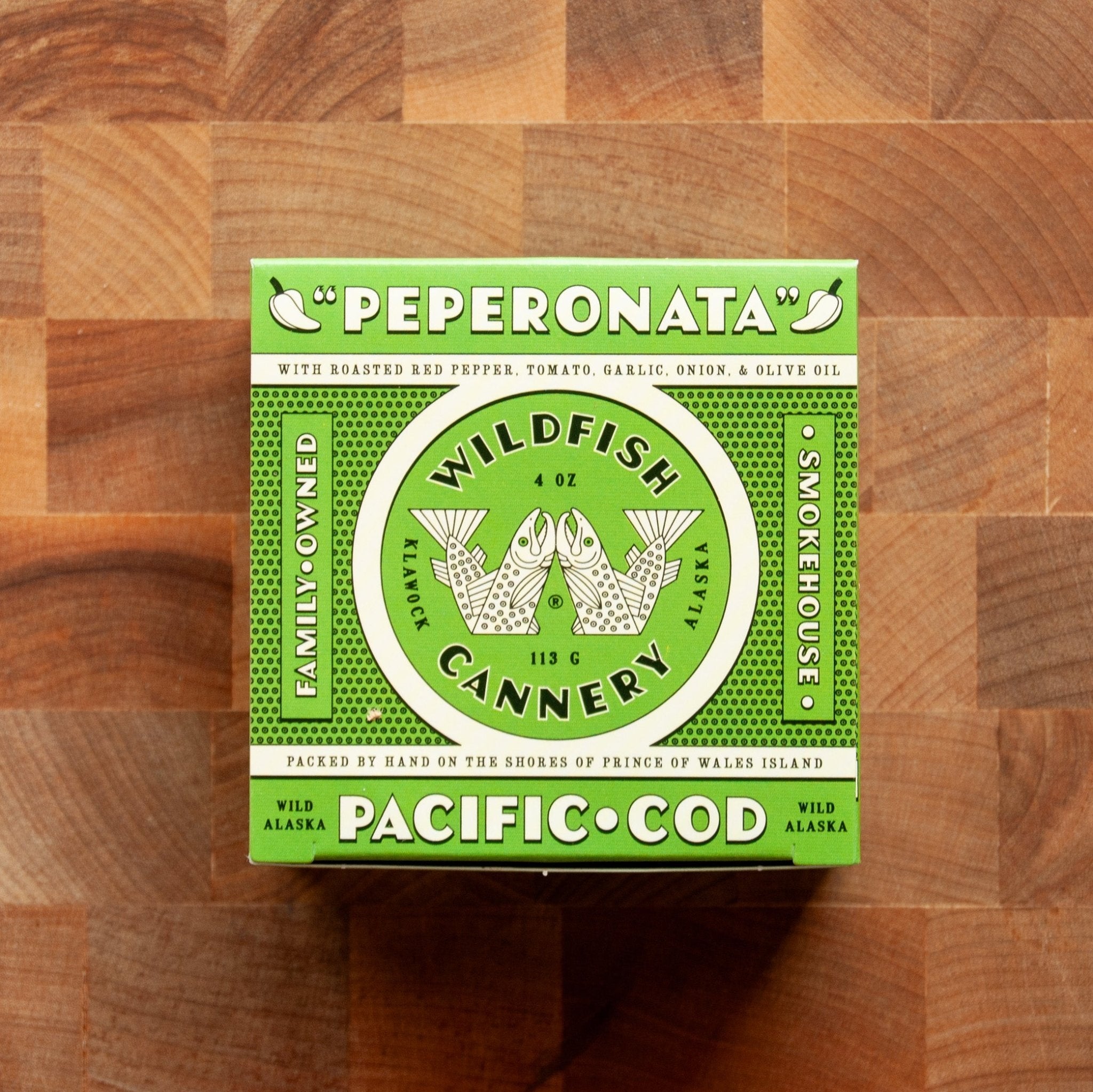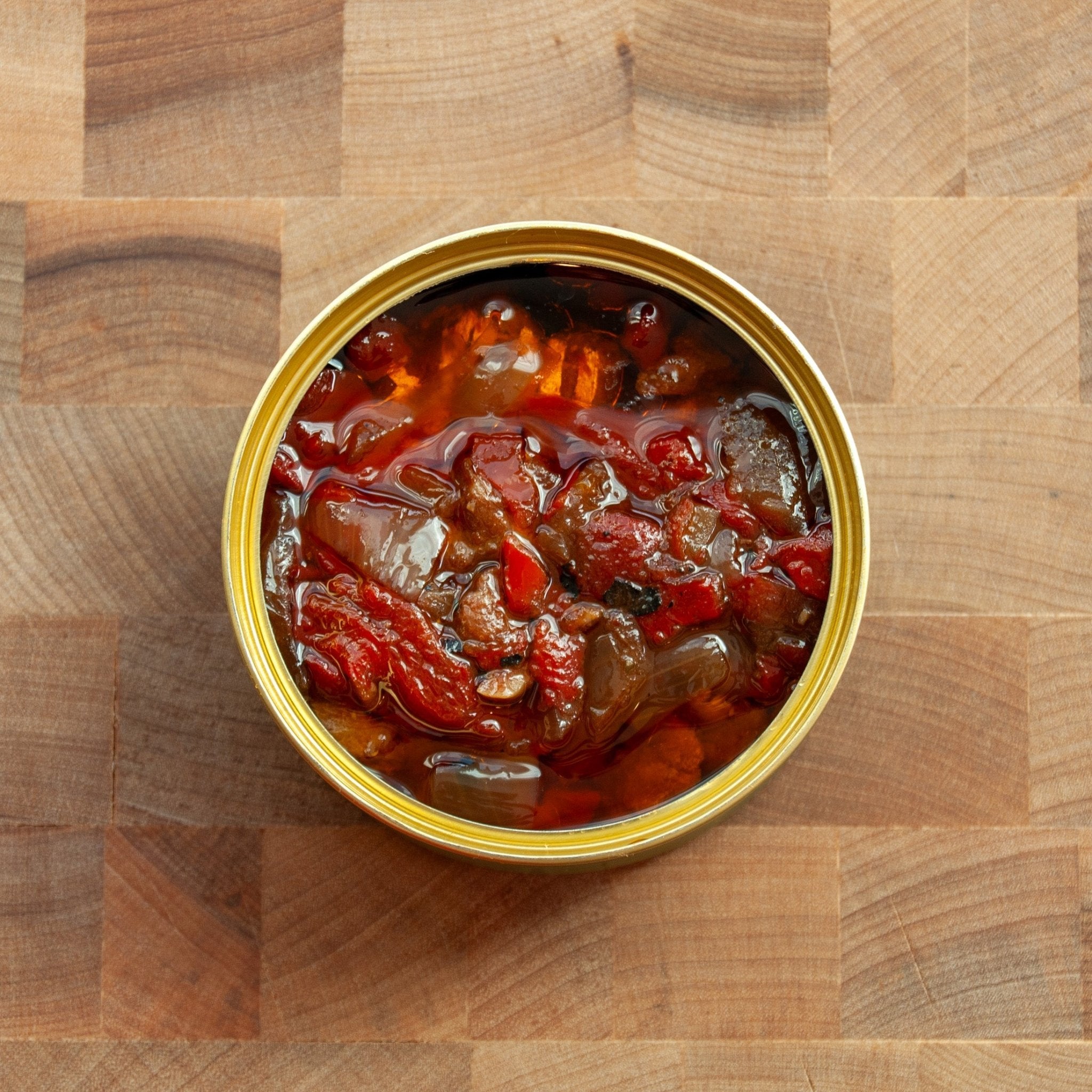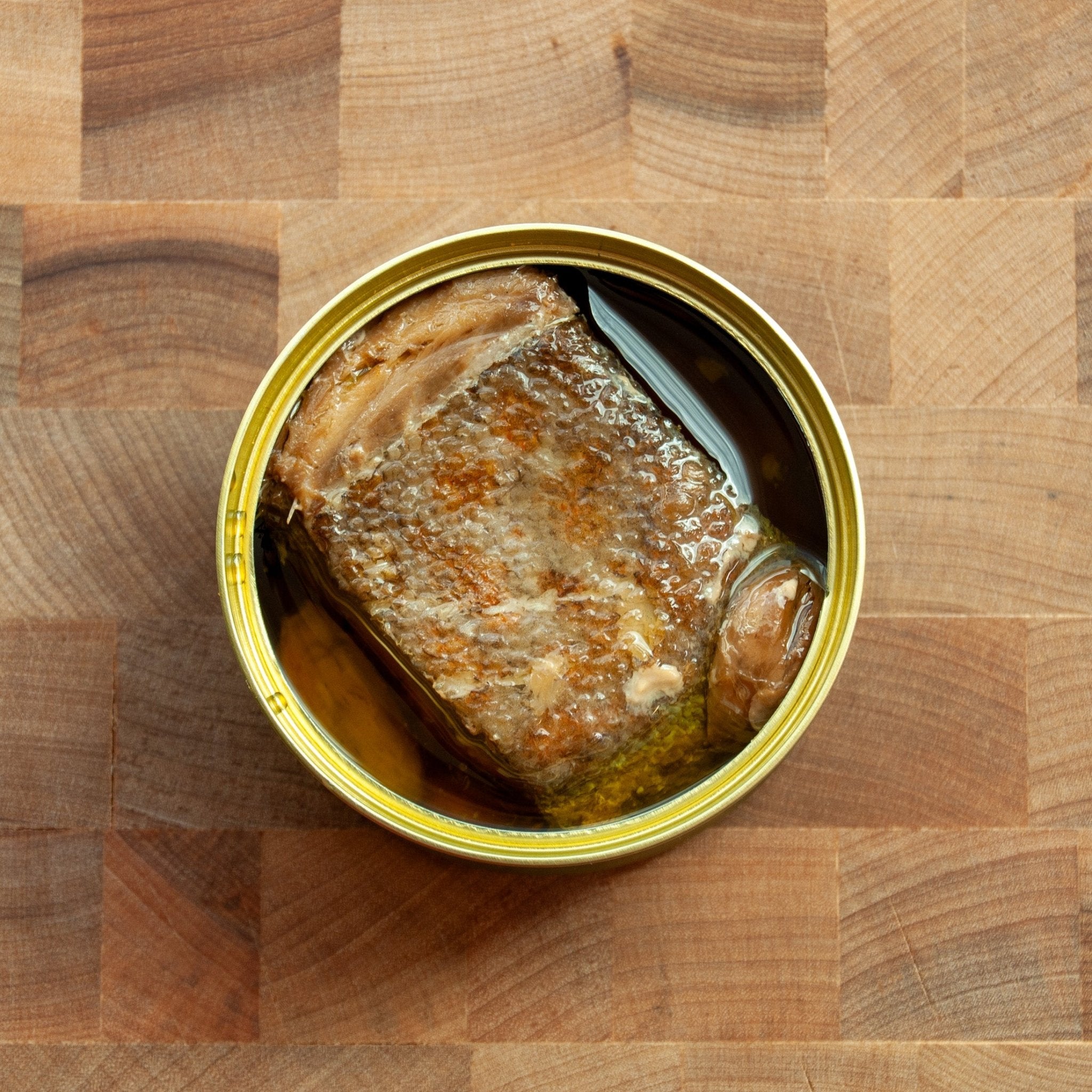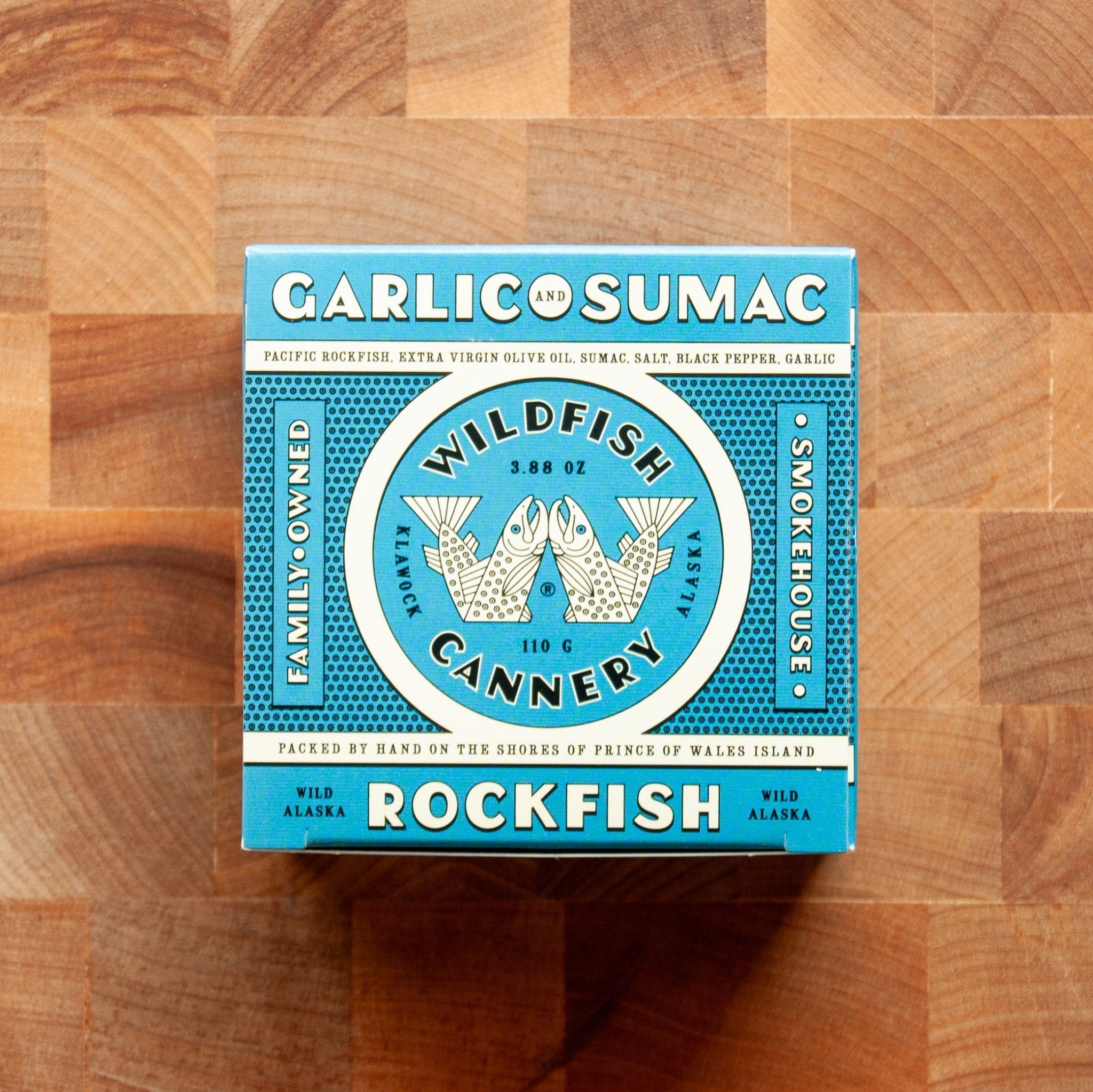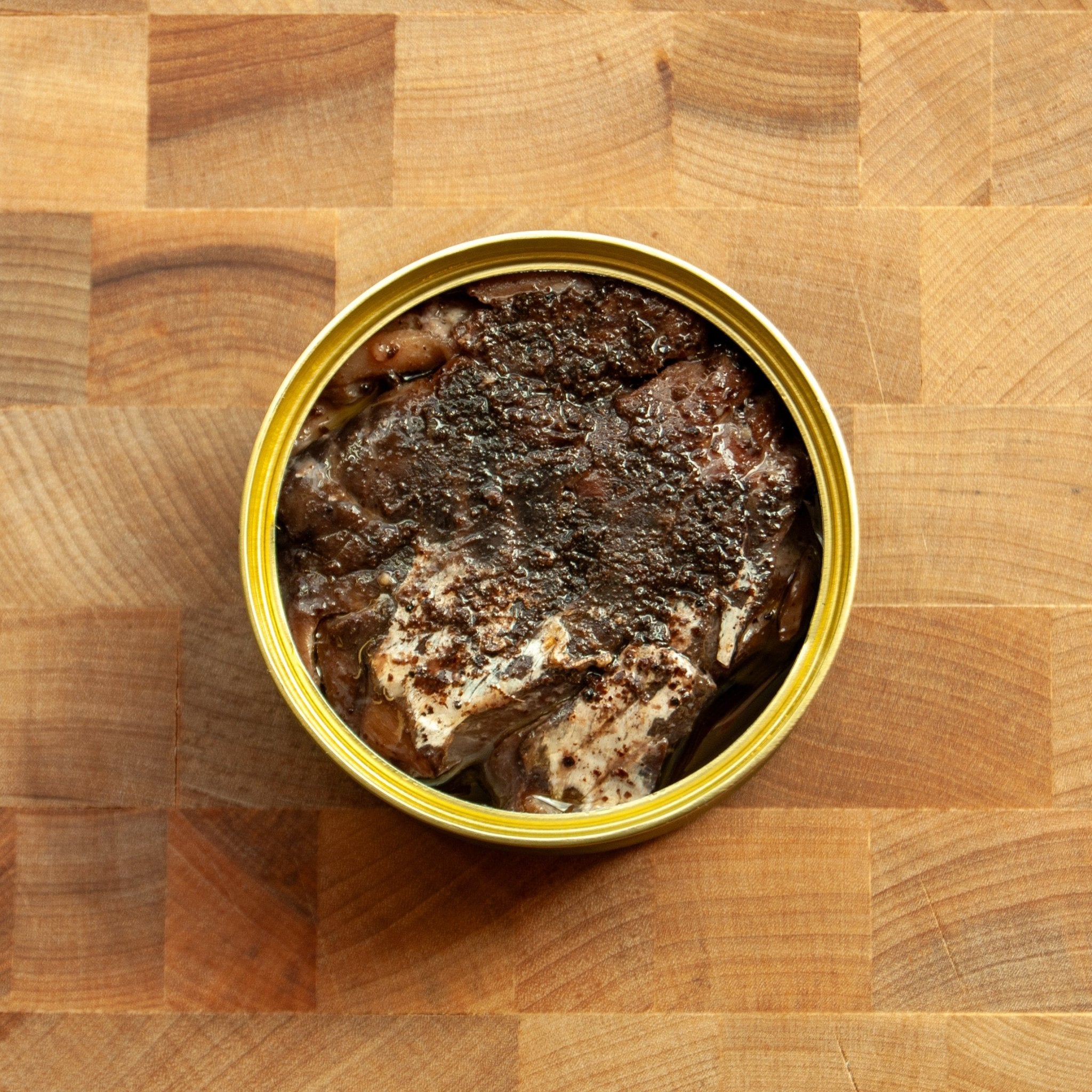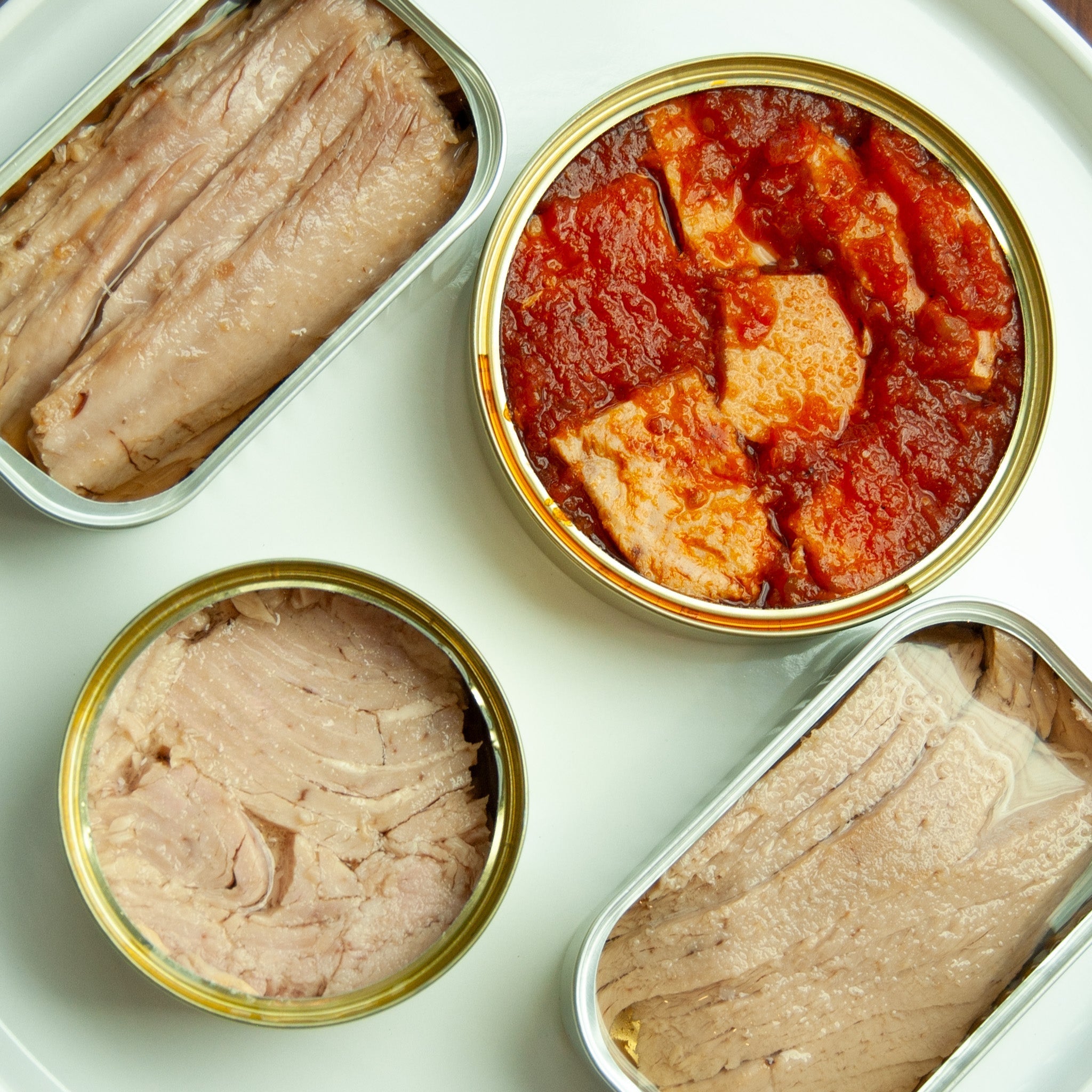White fish, such as Cod, Hake, and John Dory, are prized for their mild flavors, versatility in the kitchen, and excellent nutritional value. Whether you're looking for a healthy, low-fat seafood option, omega-3-rich fish, or a sustainable tinned fish treat, our white fish collection offers a premium selection that suits every palate. From wild-caught cod to sustainably harvested hake and gourmet John Dory, you’ll find high-quality canned white fish to elevate your meals.
What is White Fish?
White fish refers to a broad category of fish with mild, tender, and flaky flesh, known for being low in fat and high in protein. Cod, hake, and John Dory are some of the most popular varieties of white fish due to their delicate texture and versatility in cooking.
Types of Canned White Fish: Cod, Hake, and John Dory
Cod
Cod is one of the most widely consumed white fish, loved for its firm texture and mild flavor. Commonly found in the Atlantic and Pacific Oceans, cod is known for its culinary versatility and high nutritional value. Our Jose Gourmet Codfish in Olive Oil with Garlic brings out the best of this fish’s flavor, offering a ready-to-enjoy gourmet experience.
Hake
A close relative of cod, hake offers a slightly sweeter, softer texture. It's a sustainable choice that's popular in European and South American cuisines. Our Alalunga Hake in Salsa Verde presents a bold, zesty twist on this mild fish, making it an excellent addition to salads, rice dishes, or straight from the tin.
John Dory
John Dory is a gourmet white fish with delicate, buttery flesh. Its unique taste and texture make it a favorite for refined dishes. Try our ABC+ John Dory in Mint Sauce for an unexpected flavor profile that pairs wonderfully with simple sides or fresh bread.
Nutritional Profile of Canned White Fish
All three white fish options—cod, hake, and John Dory—are low in fat and high in protein, making them a nutritious choice for a balanced diet. They are also rich in omega-3 fatty acids, known for promoting heart health and reducing inflammation, while being naturally low in calories.
Health Benefits of Canned White Fish
Canned white fish is known for being a lean source of protein, low in calories, and rich in essential nutrients. Consuming cod, hake, or John Dory can help support weight management, improve heart health, and provide an excellent source of omega-3 fatty acids without compromising on flavor or convenience.
How to Choose and Store Canned White Fish
When selecting canned white fish, look for wild-caught or sustainably sourced options to ensure quality. Store unopened tins in a cool, dry place. Once opened, transfer the fish to a sealed container and refrigerate, consuming within 2 days for optimal freshness.
Best Ways to Enjoy Canned White Fish
Canned white fish is extremely versatile and can be used in a wide range of dishes. Whether it’s folding Jose Gourmet Codfish into a pasta with garlic and olive oil, spreading La Curiosa Codfish Pate on fresh bread for a quick snack, or incorporating ABC+ John Dory in Mint Sauce into a unique seafood salad, canned white fish offers endless possibilities. These ready-to-eat tins are perfect for gourmet meals on the go.








